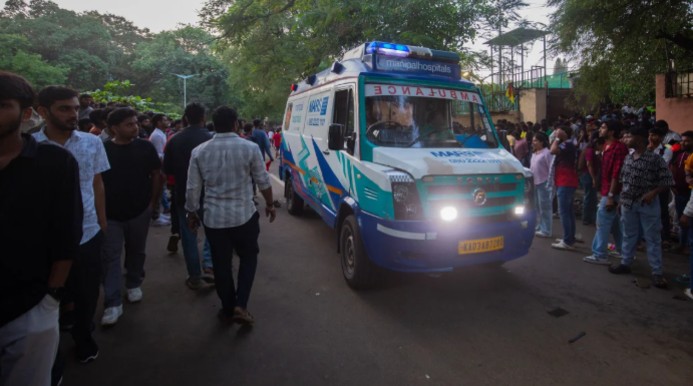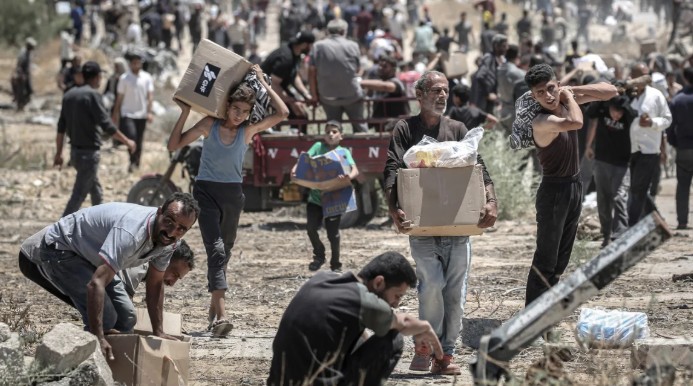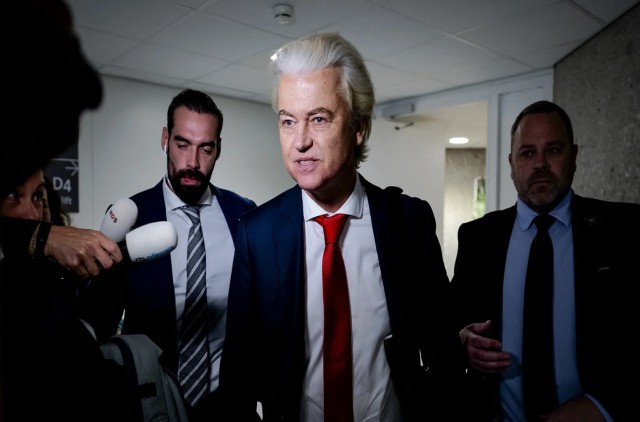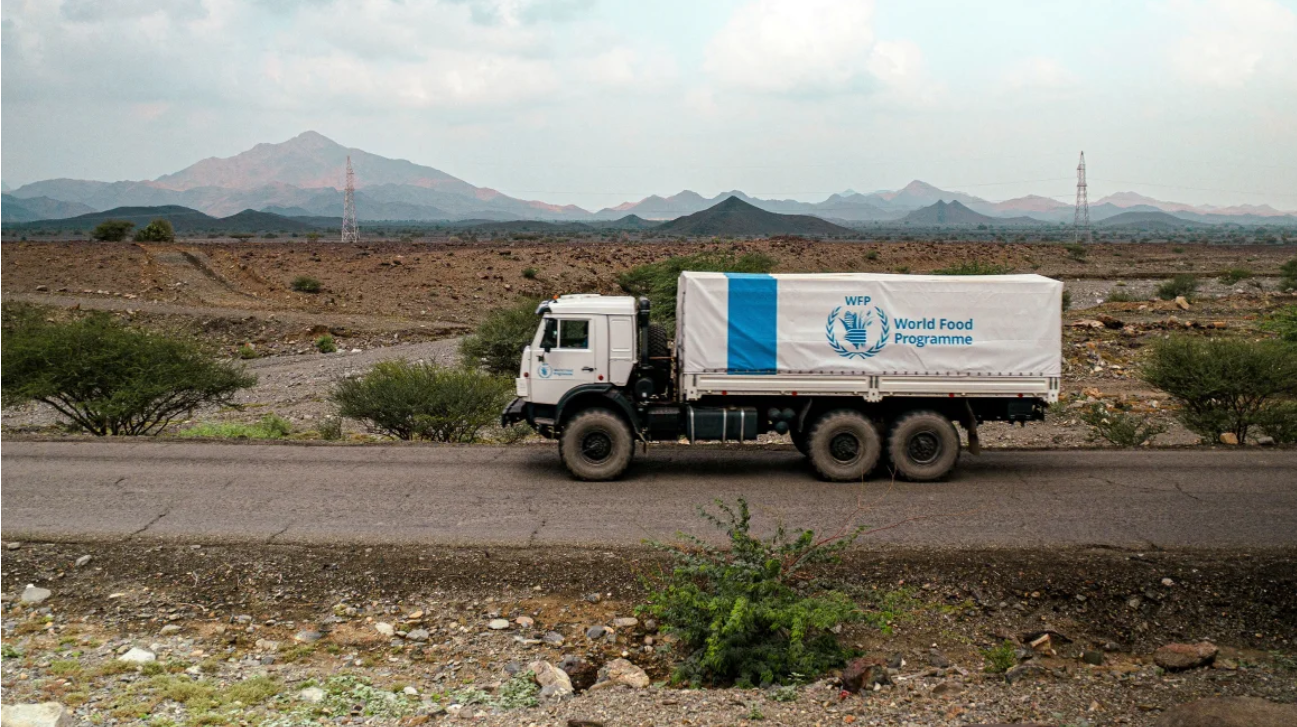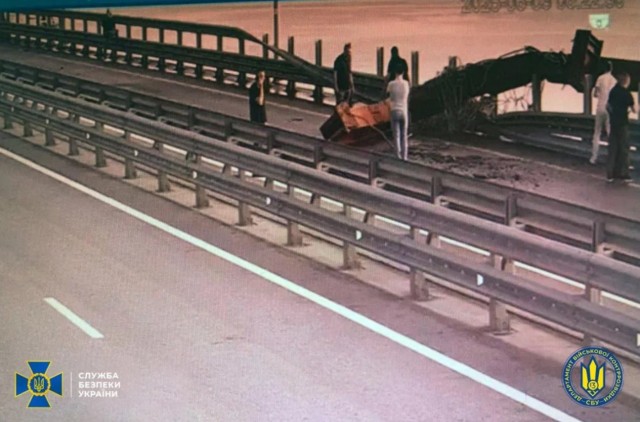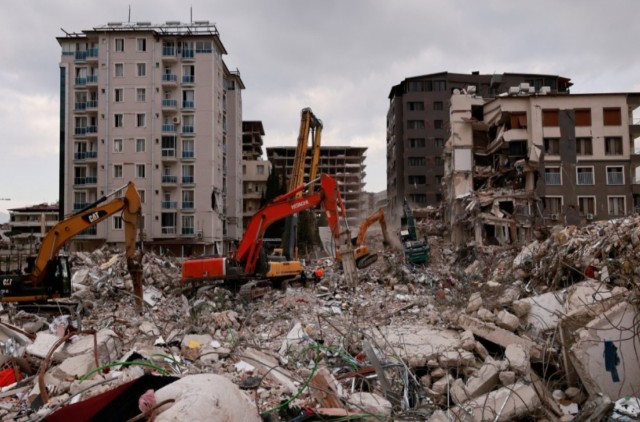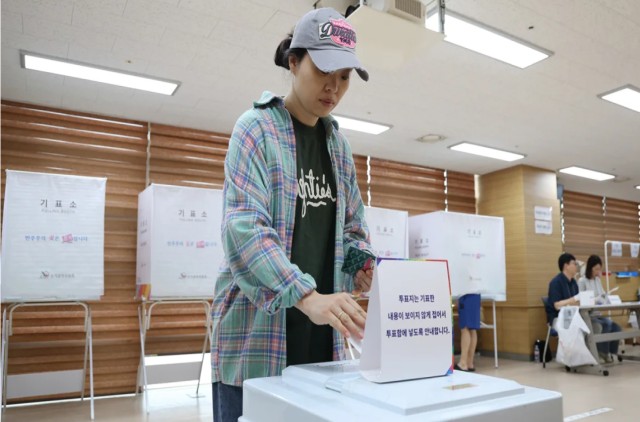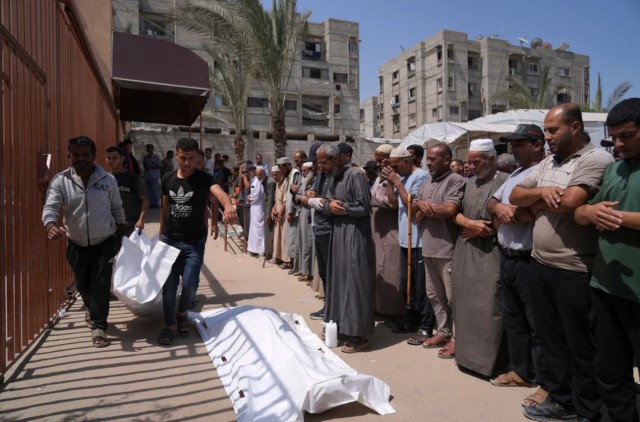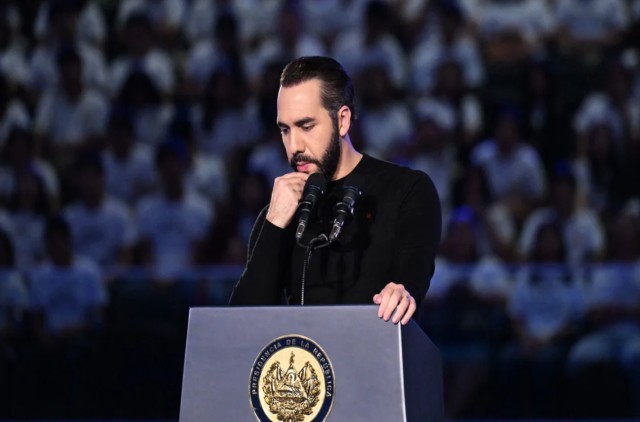
El Salvador's Nayib Bukele delivers a speech to high school students at the Adolfo Pineda National Gymnasium in San Salvador on March 15.(Getty Images)
Nayib Bukele marks six years as president of El Salvador, riding a wave of popularity and fear. Once hailed for bringing peace to the world’s most violent country, critics now call his rule a modern dictatorship. While his crackdown on gangs has reduced crime, it has also brought mass arrests and widespread repression.
Mass Arrests and Lost Liberties
Under Bukele’s leadership, around 87,000 people have been detained. Most arrests happened without due process. While authorities claim this helped restore safety, human rights groups argue it’s come at a dangerous cost.
Civil liberties have eroded, and freedom of expression has been stifled.
The government’s “state of exception,” in place since March 2022, suspends many constitutional rights. Despite the fear, some Salvadorans say their neighborhoods feel safer now. They believe the sacrifice of rights is worth the newfound peace
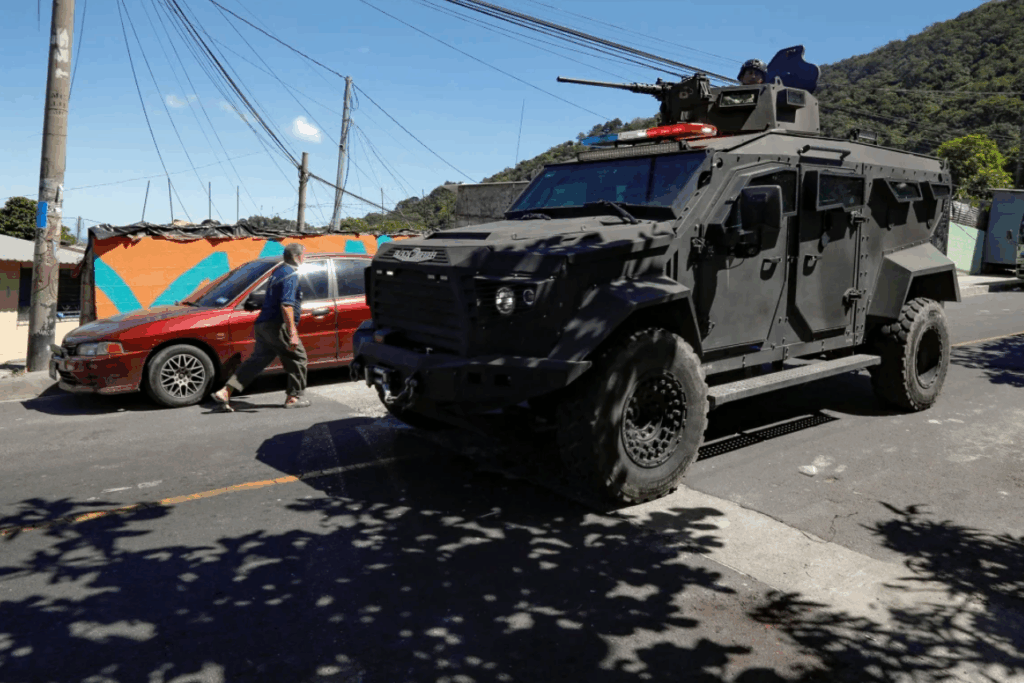
Critics Behind Bars
Not everyone feels safe. Ruth López, a human rights lawyer and vocal critic of Bukele, was arrested on corruption charges without trial. Weeks later, Bukele’s government introduced a 30% tax on foreign donations to NGOs like Cristosal, where López worked.
Rights groups view the move as a death blow to civil society. “We’ve seen a massive concentration of power,” said Juan Pappier from Human Rights Watch. He accuses Bukele of dismantling democratic checks and silencing opposition.
Reelection Amid Controversy
Bukele secured reelection in 2024 despite a constitutional ban on consecutive terms. His allies replaced top judges, allowing a favorable interpretation of the law. Critics say this was a calculated step to solidify long-term control. The strategy worked—his popularity surged as crime rates dropped.
The Victims Speak Out
Samuel Ramírez, founder of MOVIR, represents families of those wrongly jailed. He says thousands have been detained without evidence. Bukele has admitted to arresting innocent people but claims thousands have been released.
“Now the war isn’t against gangs—it’s against the people,” Ramírez warned. “There are tanks in the streets. People are scared to speak.”
Allegations of Secret Deals
Despite his tough-on-crime image, Bukele has been accused of secret negotiations with gangs. The Biden administration in 2021 said his government bribed gang leaders to keep homicide rates low.
More recently, investigative outlet El Faro interviewed gang leaders who claimed they were paid to support Bukele’s political ambitions. They said the president asked gangs to avoid violence to maintain his image. Bukele denied the claims, sarcastically saying his only “deal” was putting criminals in prison.
Journalists in Exile
Journalists who reported the alleged gang deals fled the country, fearing arrest. Seven reporters from El Faro now face warrants. Editor-in-Chief Óscar Martínez says Bukele is targeting them like he did López.
Despite the threats, El Faro continues reporting from Costa Rica. “If democracy still exists in El Salvador,” Martínez said, “it’s in independent journalism.”
NGOs Under Siege
In May, the government imposed a 30% tax on foreign funding for NGOs. For groups like the Netherlands Institute for Multiparty Democracy, this is devastating. Program officer Gracia Grande says they have three months to re-register, but no guidance has been given.
“We’re under a dictatorship,” she said bluntly.
A Model for Others?
Despite international criticism, Bukele’s tough approach has won fans abroad. Former U.S. President Donald Trump praised his crackdown and collaborated with Bukele on immigration.
El Salvador’s mega-prison, Cecot, now holds both Salvadoran and Venezuelan detainees. With harsh conditions and limited rights, Cecot is the largest prison in the Americas. Critics call it inhumane.
“This is a test case,” warned Grande. “What’s happening here could spread—even to the United States.”
Bukele, meanwhile, shows no signs of slowing down. His vision of order, built on control and fear, has reshaped El Salvador—and may yet shape the world.




